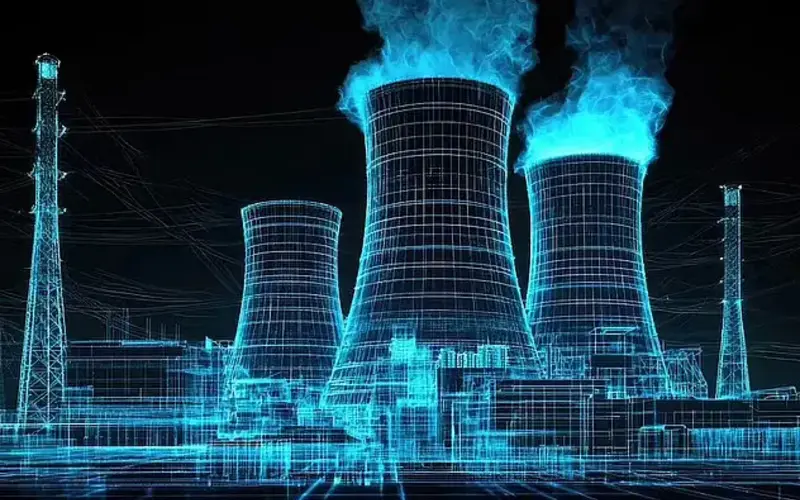Mark Zuckerberg has announced that Meta will deploy small nuclear reactors to meet the growing electricity demand for its artificial intelligence (AI) technology. Meta says that AI requires massive computing power. Reliable power supply is essential to keep its data centers around the world running 24/7. The company is now planning to use nuclear power to meet this need.
Meta recently invited proposals from nuclear power producers. They say that expanding the electrical grid and using renewable energy are essential to building the future of human connectivity and reaching the next level of AI innovation. Nuclear power can play a significant role in achieving this goal.
Mark Zuckerberg has announced that Meta will be building small nuclear reactors to meet the growing electricity demand for its artificial intelligence (AI) technology. Meta said that AI requires massive computing power. Reliable power supply is essential to keep its data centers around the world running 24 hours a day. The company is now planning to use nuclear power to meet this need.
Meta recently invited proposals from nuclear power generation companies. According to them, expanding the electrical grid and using renewable energy are important for building the future of human connection and reaching the next stage of AI innovation.
This goal deadline: 2030
Meta said that work on its nuclear power project will begin around 2030. Initially, the target is to produce 1 to 4 gigawatts of electricity. This power supply will not only meet the needs of its data centers, but also meet the needs of the relevant region. It is worth noting that a typical nuclear power plant is capable of producing about 1 gigawatt of electricity. However, no decision has been made yet on where Meta’s planned plants will be located.
How nuclear power works
The basis of nuclear power generation is the fission process. In this, atoms are split to produce heat and energy. This heat is used to convert water into steam, which is used to drive turbines to generate electricity.
Nuclear power can play a significant role in further initiatives to use carbon-free electricity in the technology sector.
Like Meta, Google and Amazon are also turning to nuclear power to generate carbon-free electricity. Google recently signed a deal with California-based nuclear power company Kairos Power. Their plan is to start operating their first nuclear power plant by 2030 and install more by 2035.
Amazon has invested in three new nuclear projects. According to the company, nuclear power will not only meet the needs of its data centers, but also contribute to meeting its goal of reducing carbon emissions by 2040.
Meta’s long-term plan
Meta said nuclear power projects are more capital-intensive than other renewable energy initiatives. Therefore, their planning and implementation must be long-term. By setting up multiple plants, it is possible to reduce production costs, which will not only help Meta meet its electricity needs, but also help reduce carbon emissions from the industrial sector.





